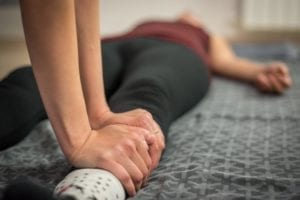An individual moving through recovery to overcome addiction or address mental health disorders will encounter a great deal of change. Navigating this discomfort is an essential part of the recovery process, and overcoming these emotional hurdles can take a lot of planning and time.
While facing one’s unique trials throughout the recovery process, massage therapy can be utilized to address the physical and emotional distress that may be prevalent throughout the day. Massage therapy’s relaxation and meditative properties can be instrumental in providing necessary breaks for the body and mind, offering a degree of ease amidst stress and change.
There Are Different Kinds of Massage
“Massage therapy” is an umbrella term with many different massage techniques available. For some, massages that affect the deep tissue and tendons of one’s body may be most beneficial to achieve the relaxation and stress relief intended. In contrast, others could be more drawn to a lighter, less intensive practice. Approaching massage therapy with an open mind and understanding one’s personal preferences regarding the kind of massage can all help an individual engage more readily in this practice.
Approaches like the Swedish massage will focus on lighter pressure and circular motions. Other massages, such as a sports massage, can target particular parts of one’s body that may feel strained, tight, and tense and will work to address these areas to alleviate aches.
The Power to Alleviate Tension
Even those who do not suffer from sports injuries may still find that their bodies can be tense. Addiction recovery, mental health disorders, trauma, and even the idea of change can beget intense levels of anxiety which can physically affect one’s body. Hypertension can cause parts of one’s body to ache, and the emotional vulnerability often associated with recovery can cause an individual to become physically guarded. Massage therapy can help to alleviate some of these feelings and open up each individual to a more relaxed physical and mental state.
Feelings of stress, tension, change, anxiety, and much more can affect an individual in recovery. Insomnia can become prevalent if an individual cannot reach a degree of physical and emotional comfort, and massage can help release some of this tension and help promote a relaxing state, essential to a good night’s rest. Headaches can also be addressed by helping the body relax and improve blood flow.
Practicing Vulnerability
Being vulnerable is one of the most challenging and essential parts of recovery. While it can be challenging to open up to others emotionally, massage therapy can safely introduce the idea of doing this. Trusting another to be in physical contact with oneself comes with a degree of vulnerability, and many may not like the idea of having their physical space compromised. However, massage therapy can be a very low-risk form of expressing vulnerability. Emerging from such a therapy session feeling better and uninjured can promote the idea of vulnerability as a catalyst for change and betterment.
Introduction to Physical Awareness
Being aware of one’s body can be an essential skill throughout recovery. There can often be physical signs of one’s symptoms, such as increased heart rate, trembling, or feelings of heaviness associated with exhaustion or depression. Being in tune with one’s body can serve as a warning sign for different aspects of recovery and promote the effective implementation of coping strategies. Massage can be an introduction to how to be attentive to one’s body.
Being aware of one’s muscles, identifying tension, and being conscious of aches or blood flow can promote a feeling of security in one’s body. It can also help an individual feel more prepared to identify and address signs of stressors early and cope effectively.
Massage therapy can also be the catalyst for meditative relaxation that may be necessary at any stage of the recovery process. From the first steps of learning about one’s unique situation to implementing reintroduction and coping strategies, each stage of one’s recovery can all come with a great deal of stress. Simply finding a way to relax is essential, especially amidst any number of stressors while planning one’s future.
Massage has many specialized benefits, but its ability to allow an individual to detach from outside stressors and focus only on the feelings of their bodies can be the most impactful for the overall recovery process. It can allow the mind to rest and recover from the trials that define one’s recovery journey. Prioritizing the practice of destressing is vital for recovery, and trying massage therapy can be a wonderful way to do so.
Massage therapy can be a great introduction for learning how to relax, detach, and focus wholly on yourself. The mental and physical respite provided by the experience can be instrumental in overcoming any number of your hurdles, either in addiction recovery, trauma recovery, or addressing your mental health. At Avalon Malibu, we understand the need for relaxation and care throughout your journey, and we are prepared to offer our massage therapy session, along with many more options. Your time with us can be customized to your unique needs and goals with individual and group therapy, writing therapy, yoga, art, music, and much more, all approaching your unique recovery story with a holistic mentality. For more information on how we can personalize your time with us, or speak to a caring, trained staff member about all of the options available to you, call to speak to us today at (844) 857-5992.












